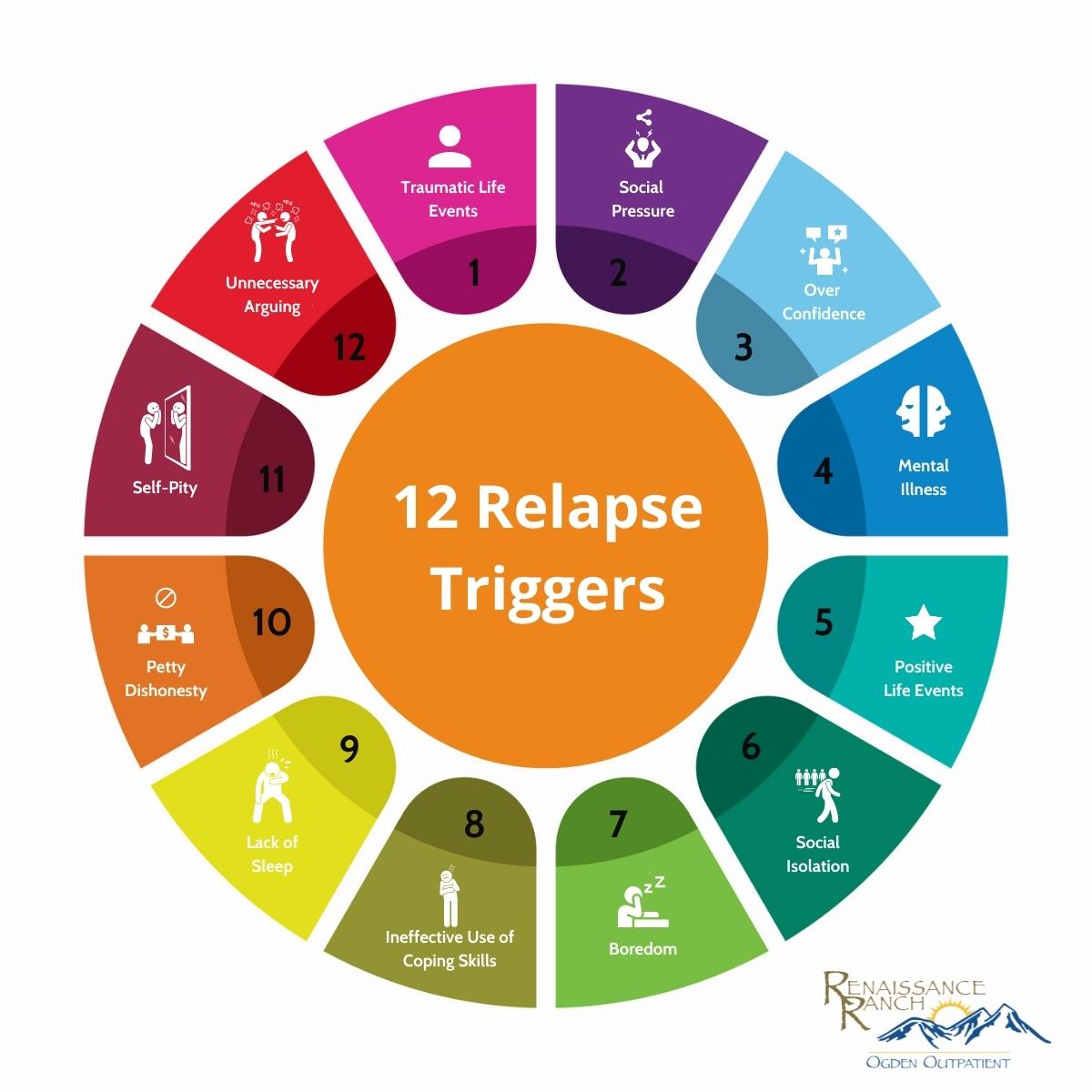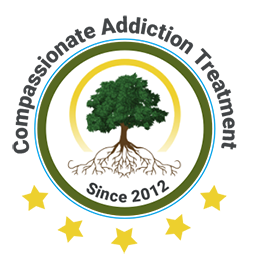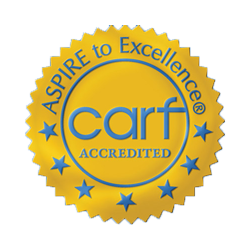When patients leave recovery, the challenges of returning to life, as usual, can be daunting. We can especially let fear take over when we buy into the frightening statistics that put the likelihood of relapse anywhere from 50-90%.
Topics covered on this page:
- What is Relapse?
- Signs of Relapse
- 10 Reasons Why People Relapse
- What is Relapse Prevention?
- Relapse Prevention Techniques
- Relapse Treatment Programs
- Best Intensive Outpatient Treatment Center for Relapse Recovery
Understand the signs of relapse and have a prevention plan in place to help prevent a drug or alcohol relapse. Call us, we will help you recover!
It’s important to realize that recovery is a long process, not a quick-fix solution. However, relapse is also a process, and with the proper preventive techniques and mindful monitoring, we can help prevent relapse and further empower our patients on their road to recovery.
What is Relapse?
When a person addicted to alcohol or a drug has successfully stopped using the substance but later starts using it again, the return to substance abuse is called a relapse. Relapsing is a common experience for people on their journey to sustained long-term addiction recovery. People often have one or multiple relapses along their way. Why? Because, after having a habit of using a substance, learning how to live without it is hard to do.
Doing things differently means building a new habit. It’s similar to switching from overeating to eating less. It's easier to go back to the pattern, especially resorting to it for comfort in times of stress or depression, than to stay on track with cultivating the new, better habit.
The key to relapse recovery success is to stop using again and try living without the drug again. Some people complete rehab, then relapse and return to treatment multiple times before they can live entirely free from substance abuse. The will to return to a drug rehab ultimately makes the difference in such cases, bringing the person back to freedom and away from drug abuse each time until they eventually can sustain their recovery.
Signs of Relapse
Friends, family, and coworkers of someone going through relapse may notice that the individual is exhibiting some common behavioral changes associated with substance abuse. Some of the signs of relapse can include:
- Self-isolating, spending lots of time alone
- Changing friends frequently
- Avoiding spending time with friends and family the way they previously did
- Losing interest in favorite activities
- Declining hygiene, such as not showering, changing clothes, or brushing teeth, etc.
- Feeling exhausted
- Feeling sad or depressed
- Changes in eating habits (eating less or eating more)
- Being extremely energetic, talking very rapidly, or saying nonsensical things
- Frequent mood swings
- Shifts between feeling healthy and good to feeling bad
- Irregular sleep hours
- Missing important appointments
- Declining performance at school or work
- Increasing problems in personal relationships
It can sometimes be too difficult for a person struggling with addiction relapse for a while to quit retaking the drug without support. Some people experience withdrawal symptoms when they attempt to stop taking a drug. They may keep resorting to taking the drug again to stop the feeling of sickness. In these cases, people may need detox help and an effective rehab program to succeed in learning to live drug-free.
10 Reasons Why People Relapse
As many as half of drug users in the United States have an underlying (and sometimes undiagnosed) mental disorder. When patients learn to depend on substance abuse in order to self-treat mental illness, it’s vital to get control of the mental disorder before addiction recovery is a practical reality.
When patients are able to get a handle on underlying problems like anxiety disorders, trauma, depression, or personality disorders, then they are more able to take charge of their addiction recovery as well and understand that there are options besides substance abuse.
Withdrawal Symptoms
One of the most common reasons for relapse is the discomfort of withdrawal. Depending on the addictive substance, detoxification and withdrawal symptoms can range from pain, headaches, trembling, sweating, anxiety, insomnia, vomiting, seizures, and in some cases death.
Access To Places With Drugs And Alcohol
Having easy access to places where drugs and alcohol are readily available can make saying no difficult for people who struggle with addiction. An important part of relapse prevention is limiting access to places where illicit substances will be available for purchase or passed around.
Access To People With Drugs And Alcohol
Being around old friends and contacts can remind a former addict of good times and create the desire to use again. This can be even more challenging for former addicts whose friends use peer pressure. Saying goodbye can be hard, but a critical step in recovery is eliminating contact with people who use drugs and alcohol.
Reminders Of Addiction
Objects and things can also trigger a relapse by serving as a reminder of addiction and the feeling of being intoxicated. Former addicts have more success when they eliminate all potential reminders of drugs and alcohol in spaces they can control.
Mental Illness And Past Trauma
Many people who suffer from mental health disorders and/or a history of past trauma use drugs and alcohol as a form of escapism or self-medication. Often, treating underlying mental illnesses and symptoms of Post-Traumatic Stress Disorder can help to significantly reduce the risk of relapse.
Triggering Relationships
Difficult relationships and stress can easily cause a former addict to become triggered and puts them at the risk of relapse. As difficult as it may be, for some people, cutting off contact to people who are toxic or who don’t support a sober lifestyle is the best way to stay on the path to sobriety.
New, Uncomfortable Situations
Former addicts that tend to be uncomfortable in new situations or where there is a need to be social may find themselves tempted to use substances to numb the emotions and “get through it.” Many former addicts believe they are unable to do certain things or be around other people without being intoxicated.
Loneliness And Boredom
Feeling alone and/or bored is a relapse trigger for many former addicts. Planning fun activities with sober friends can help stave off boredom and the feeling of being lonely, ideally keeping the person’s mind too occupied to think about drugs and alcohol.
Becoming Too Confident
After several weeks, months, or even years of sobriety, it’s easy for a former addict to become overconfident in their ability to resist the temptation of drugs and alcohol. They may imbibe with the intent of it being a singular event, only to fall down the same rabbit hole of using again.
Lack Of Access To Ongoing Support
People who don’t have access to a drug and alcohol treatment program that provides ongoing support tend to relapse more often than those who do. Having the ability to reach out for help from drug & alcohol treatment centers in Arizona can reduce the reoccurrence of active addiction.
What is Relapse Prevention?
Relapse is a very common occurrence after recovery. In fact, around a third of people who succeed in treatment relapse within the first several months after leaving therapy. Sustaining recovery is a lifelong journey, and there will be many bumps and pitfalls along the road. Remaining committed to a healthier lifestyle, using proven therapeutic relapse prevention tips and techniques like those discussed above increases a person’s potential for living drug-free long-term.
Feeling lonely, stressed, sad, angry, or depressed, or triggers in a person’s environment can lead to drug or alcohol addiction relapse. For example:
- The emotions that arise from the loss of an important relationship may trigger an urge to turn back to using a drug that temporarily alleviates the sense of emotional pain.
- Exposure to environmental triggers can also lead to relapse. Being with friends while they’re using drugs, or being in an area where you frequently obtained drugs can be triggering. Alternatively, being with friends who don’t abuse drugs actually reduces the risk of relapse.
Fortunately, avoiding relapse is fully manageable by maintaining a lifestyle that includes daily use of proven relapse prevention techniques following their relapse and recovery treatment program. Relapse prevention training and structured support can be provided in either residential or outpatient treatment programs, in either individual or group settings.
Relapse Prevention Techniques
According to the National Institute of Health findings on addiction treatment, addiction treatment works by helping people learn to identify situations that are high-risk for them more quickly. In recognizing those circumstances in which a person is vulnerable to relapse, he or she can more readily use the cognitive and behavioral strategies learned in therapy to avoid relapse.
Practicing these techniques and tips for avoiding relapse builds the individual’s coping skills. Developing a strong ability to use these techniques empowers the individual to overcome tendencies to react in old ways to new instances of triggering. Equipped with advanced therapeutic tools, the recovered person deals with once stressful or overwhelming, and still often unavoidable, situations and personal moods with increasing strength and stability.
Here are some examples of ways for people in recovery to avoid high-risk environments and occurrences more easily, structure their time, and manage their lives and personal growth to prevent relapse:
- Choose a hobby. — Being bored can lead to dwelling in emotional temptation and end up relapsing. Engaging in an enjoyable sport or hobby is satisfying and helps maintain balance.
- Rely on your support system. — Strong support from family, friends, and peers in one’s recovery groups can provide important listening and encouragement for help staying centered.
- Build self-empowerment. — Learn productive ways to handle stress, anxiety, and depression by using the training you receive so you can then help the people you care about.
- Use personal development practices. — Learning mental relaxation and meditation techniques and routinely taking time to practice these can help manage negative thoughts and urges.
- Increase knowledge to increase power. — Education is the way to self-awareness, which means that understanding your addiction is a powerful technique for strengthening recovery.
- Attend support group sessions. — Group members can share ideas, discuss situations and scenarios, and build confidence from sharing each other’s journeys through recovery.
- Gain personal enrichment. — Exercising, reading, and trying something new, like new food, restaurant, cultural experience, etc., replace substance attractions with natural exhilaration.
- Volunteer. — Working to help in a great cause is highly rewarding. It inspires a more profound sense of gratitude, which is a fundamental perspective to be fostered for sustained addiction recovery.
Relapse Treatment Programs
Building Cognitive Tools And Resources
The cognitive behavioral counseling approach has been found to be very effective in treating addiction. This approach is unique in that it focuses specifically on building internal resources for coping with stress or depression, as well as countering fallacious thought patterns. Together, the patient and psychologist set goals and objectives, and then build skills and techniques that will help to achieve that outcome through directing mental resources and finding creative solutions for problematic self-talk.
Often, stress and/or depression are major triggers for relapse. However, by building our patients’ internal resources for dealing with these challenges in a healthy and self-sufficient way, they are able to redirect their path during the initial stages of relapse.
Fortifying Support Networks And Connections
The most important resource of each patient as they leave a recovery center is their network of personal connections that can provide love and support as they work on their road to recovery. One of the most dangerous things for someone recovering from addiction is isolation.
Our focus on family dynamics and intensive family and group counseling seeks to strengthen each patient’s resource network, through building communication skills, troubleshooting harmful relationship patterns, and enabling breakthroughs between family members. Our responsibility to teach coping techniques and effective management doesn’t end with our patients; it’s also important to build up family and friends of our patients so that they are further empowered to aid in the recovery of their loved one.
Spiritual Approach
Something that sets our recovery center apart from others is our incorporation of spiritual principles. While using scientific, modern resources and techniques, we also recognize that for many of our patients, the hope and motivation for addiction recovery has a spiritual aspect. We believe that there is hope for true and lasting healing for every single person who comes through our door.
Renaissance Recovery Center in Gilbert, Arizona
Renaissance is an outpatient alcohol and drug rehab center in Gilbert, Arizona. We help identify and overcome the underlying causes of addiction, to minimize the risk of relapse after treatment. Our addiction recovery specialists work with each client in his or her personalized recovery program. We also provide mental health treatment.
We offer affordable rehab therapy programs, and we can accept most health insurance types. We can confirm your coverage for the treatment with your insurer for you if you wish.
Call Renaissance Recovery Center, Gilbert AZ at (480) 725-8215, and schedule a free consultation to learn how our addiction recovery treatment and relapse prevention support program can help you change your life.













